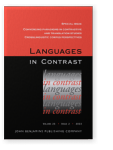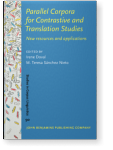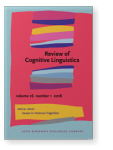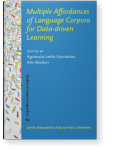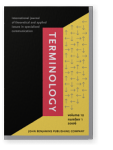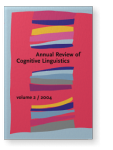Ulrike Oster
List of John Benjamins publications for which Ulrike Oster plays a role.
2024 Between source language constructions and target language expectations: An analysis of passive constructions in translated and non-translated Spanish Review of Cognitive Linguistics: Online-First Articles | Article
This paper is situated within Cognitive Translation Studies (CTS). It follows Halverson’s Gravitational Pull Hypothesis (2003, 2010, 2017, 2024), a framework that explains the translation process and its outcome by invoking the cognitive mechanisms of the bilingual mind. The paper adopts the… read more
2023 Translating emotions: A corpus-based study of the conceptualization of ANGER in German-Spanish translation Converging paradigms in contrastive and translation studies: Crosslinguistic corpus perspectives, Bernardini, Silvia and Adriano Ferraresi (eds.), pp. 199–225 | Article
This paper is a corpus-based study of how translation affects the portrayal of emotion concepts. It aims to establish whether there are differences between translated texts and original texts in a given language as to how emotions are expressed and whether emotion conceptualization in the… read more
2019 Indexation and analysis of a parallel corpus using CQPweb: The COVALT PAR_ES Corpus (EN/FR/DE > ES) Parallel Corpora for Contrastive and Translation Studies: New resources and applications, Doval, Irene and M. Teresa Sánchez Nieto (eds.), pp. 197–214 | Chapter
This contribution presents a section of the Corpus Valencià de Literatura Traduïda (COVALT), created by the research group of the same name (Department of Translation and Communication, Universitat Jaume I, Spain). The COVALT corpus is a four-million word corpus made up of narrative works… read more
2018 Emotions in motion: Towards a corpus-based description of the diachronic evolution of anger words Issues in Humour Cognition, Dynel, Marta (ed.), pp. 191–228 | Article
This paper outlines some of the challenges and possibilities of a corpus-based approach to the diachronic description of the semantics of emotion words. It analyses three German anger words (Wut, Zorn and Ärger) in two corpora: DTA (Deutsches Textarchiv, covering the period 1600–1899) and DWDS… read more
2015 Webquests in translator training: Introducing corpus-based tasks Multiple Affordances of Language Corpora for Data-driven Learning, Leńko-Szymańska, Agnieszka and Alex Boulton (eds.), pp. 201–224 | Article
The use of corpora has proved to be a valuable pedagogic resource, not only in language learning but also in translator training. However, corpora are sometimes seen by students as excessively complicated in terms both of the great amount of information they provide and of the complexity of their… read more
2006 Classifying domain-specific intraterm relations: A schema-based approach Terminology 12:1, pp. 1–17 | Article
This paper proposes a tool for the classification of domain-specific intraterm relations. It thus aims to present both the process and the product of classifying these relations. First, a description is given of how semantic relations and — more specifically — intraterm relations are understood and… read more
2004 From relational schemas to subject-specific semantic relations: A two-step classification of compound terms Annual Review of Cognitive Linguistics: Volume 2, Ruiz de Mendoza Ibáñez, Francisco José (ed.), pp. 235–259 | Article
Compounding is a major word-formation procedure in many languages, and even more so in specialised terminology. The classification of these compound words is a very complex issue due to the large number of semantic relations that can hold between the constituents of the compound. Typologies for… read more
